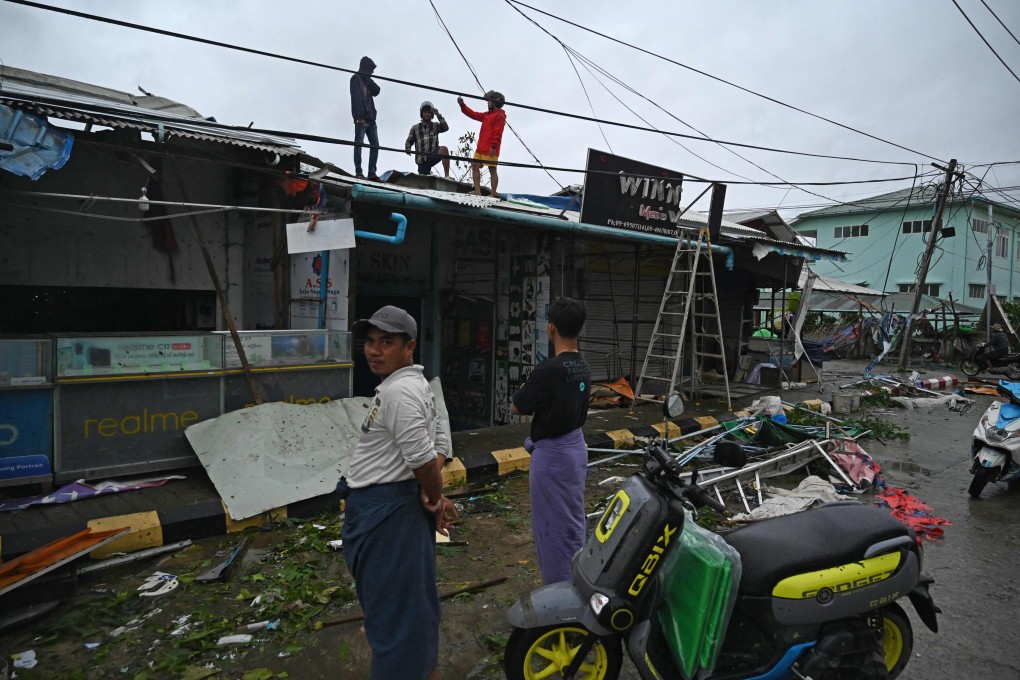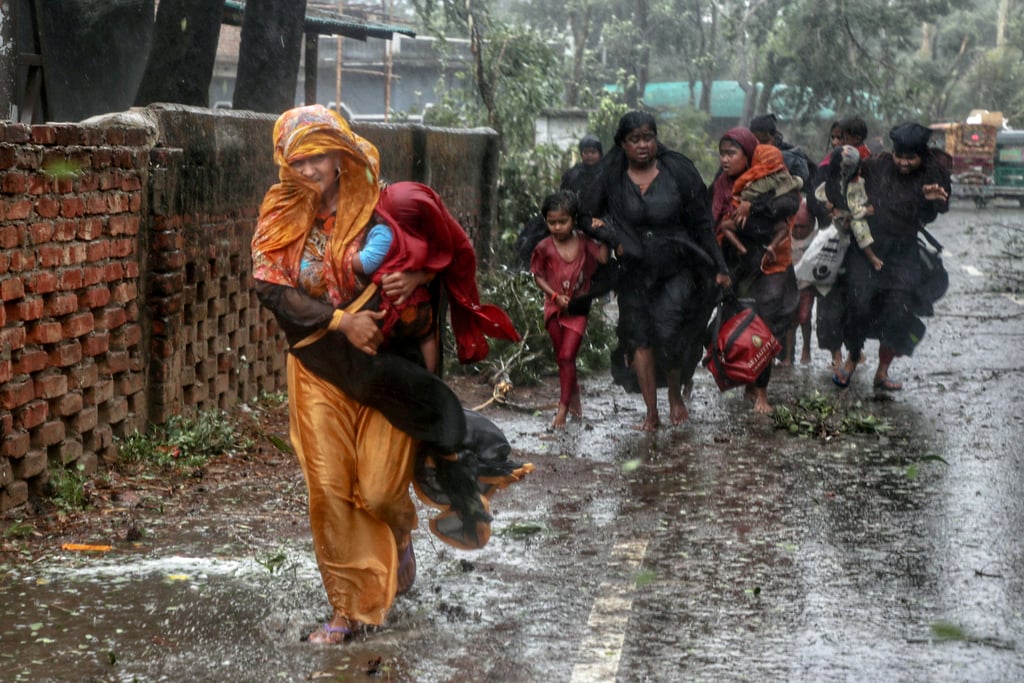Advertisement
Asian Angle | Cyclone Mocha disaster in Myanmar a wake-up call for Asean, world to take climate security seriously
- Climate change is a security issue with profound implications for war and peace, with an all-hands-on deck approach needed
- Helping vulnerable states such as Myanmar requires a culture and habit of cooperation among Asean countries and major powers along with respecting state sovereignty
Reading Time:4 minutes
Why you can trust SCMP
0

Coming on the heels of a brutal heatwave in Southeast Asia is Cyclone Mocha, among the biggest in the region’s history. The storm has left a trail of destruction across Myanmar’s coastal Rakhine state.
But even as we mourn the humanitarian tragedy, we must come to grips with the fact that climate change is a security issue, with profound implications for war and peace. The way to deal with grave challenges such as climate security is to have an all-hands-on-deck approach regardless of geopolitical rivalries.
The Bay of Bengal region straddles South and Southeast Asia and is enormously vulnerable to climate change-fuelled natural hazards, particularly cyclones, floods, and sea level rise.
But the region’s pre-existing political fragility means that these hazards could potentially worsen social fault lines and enhance conflict. Such conflict can be induced through various pathways, such as hostile responses to migrants and refugees, widening of existing fault lines over scarce resources in communities, or states of emergency that may lead to harsh crackdowns and alienate citizens from their government.

A recent study on the climate-conflict nexus in the Bay of Bengal region published by the Center for Preventive Action at the Council of Foreign Relations (CFR) in Washington identifies a zone of high climate-conflict risk spanning northeastern India, Bangladesh and Myanmar. Here, the greatest climate vulnerability coincides with the highest risks of conflict. The CFR report lays out four climate-conflict scenarios in the Bay of Bengal region, the most dangerous of which is a climate shock or a more gradual impact that further accelerates Myanmar’s fragmentation.
Advertisement
